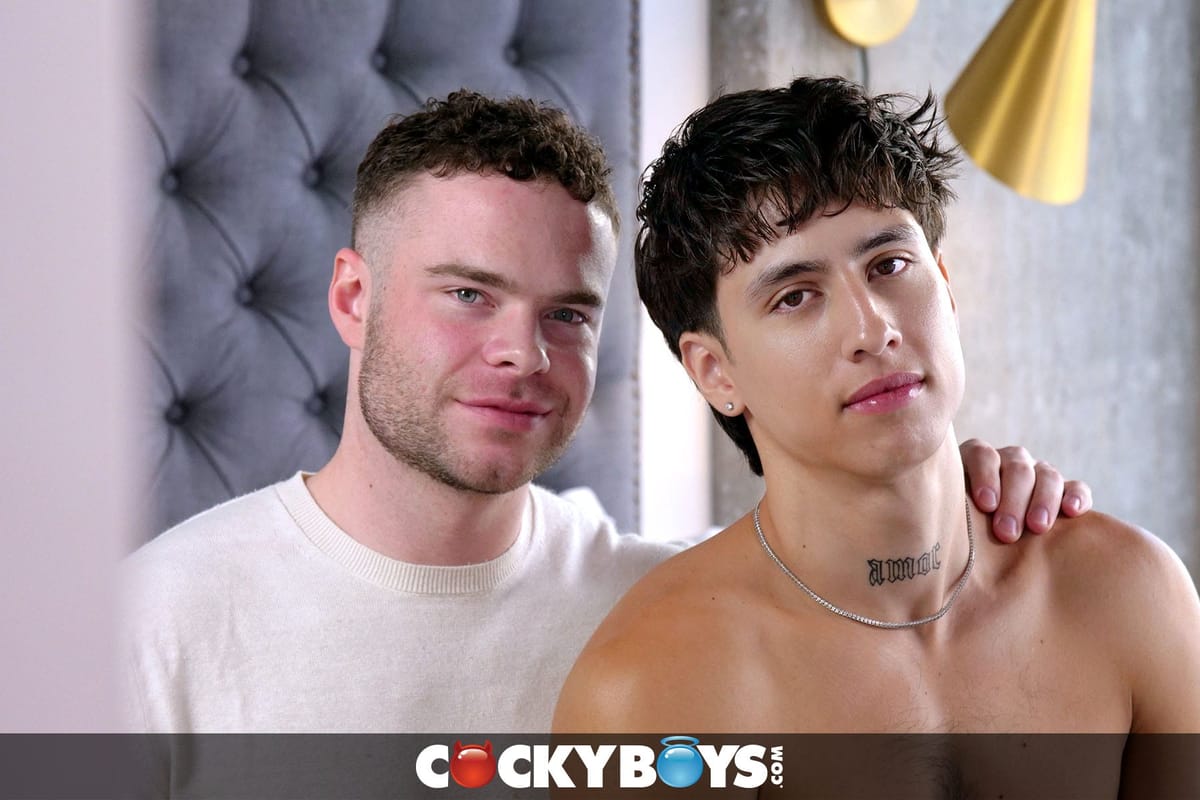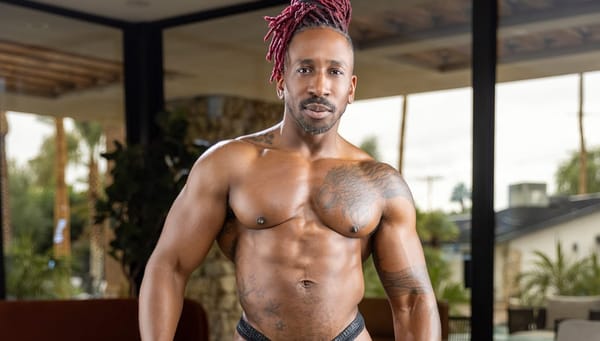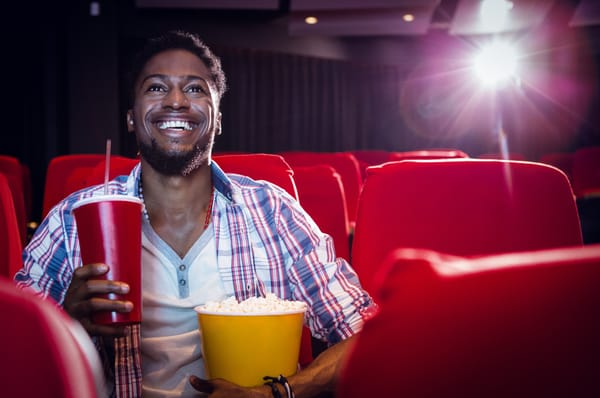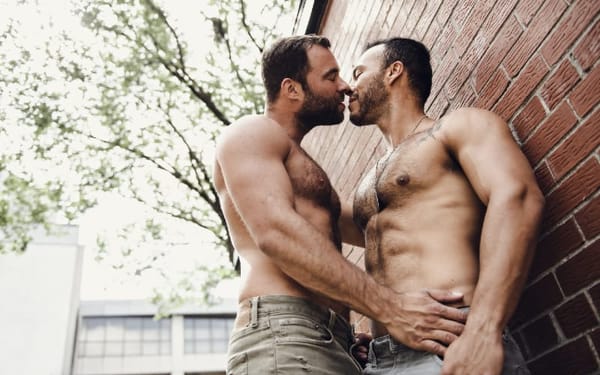Culture Watch: Deep Wheel Orcadia
A celebration of language, identity, and survival.
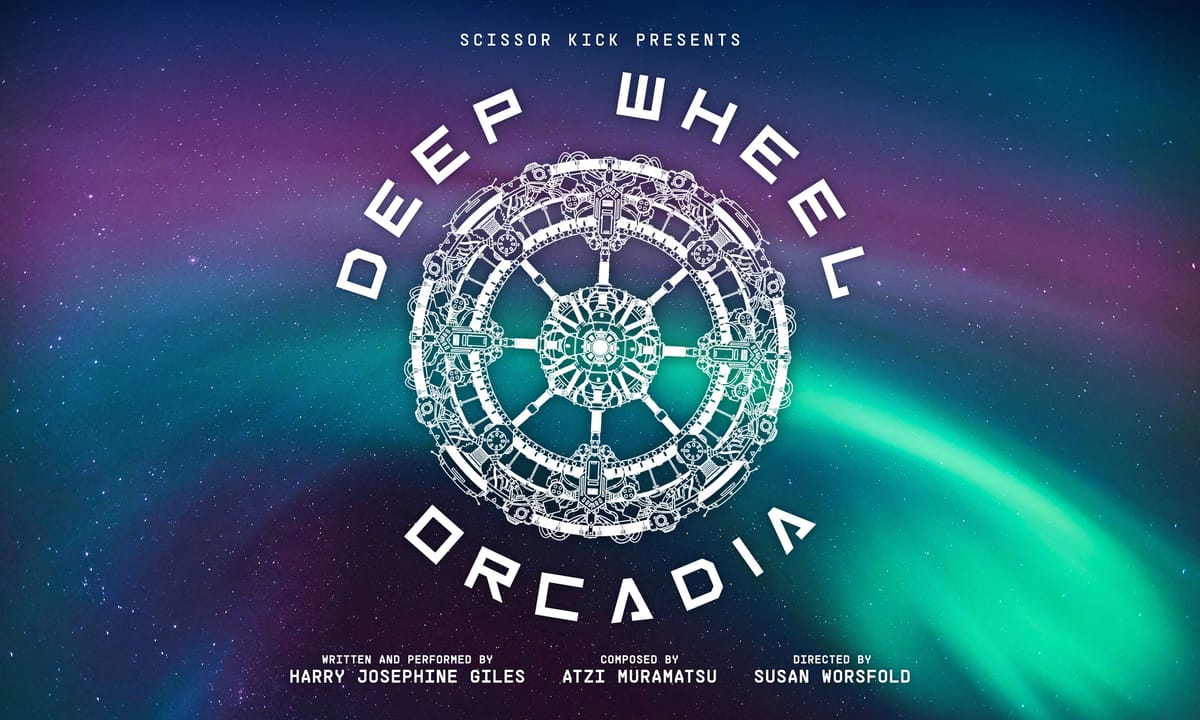
Based on the verse novel by Harry Josephine Giles, Deep Wheel Orcadia presents a fusion of performance and music, with a story told entirely in Orkney Scots (with English surtitles).
With a score by Atzi Muramatsu, the production is directed by Susan Worsfold, and the sci-fi narrative celebrates a living minority language and places it at the heart of the cosmos.
When Astrid returns home from art school on Mars, she’s lost to find inspiration on a distant, dilapidated space station spinning slowly through the stars – Deep Wheel Orcadia. As the station and its people struggle for survival, Astrid meets Darling, a mysterious Martian seeking refuge in an already troubled haven. The fragile connection between two outsiders becomes a lifeline as Deep Wheel Orcadia delves into queer identities and a struggle for survival.
We caught up with Harry Josephine Giles for a behind-the-scenes look at the production.
What was your process to turn your verse novel into this performance work?
It’s been a really long process – we’ve been working on it for 5 or 6 years, I think.
My writing is very oral, very performative. I always write kind of thinking about the stage, and from early on in working on this book, I’ve been working with Atzi Muramatsu, who’s the composer and cellist on the project, on making a performance, so we’d always conceived of the performance as part of the project. And actually, the music that’s part of this show and the words have evolved kind of alongside each other.
But things have really kicked into gear in the last year working with Scissor Kick as the producers to kind of make it the visual spectacle it is now. So, over the years as we’ve worked on it, more and more collaborators have come in – first me and Atzi working on words and music, and then the whole string quartet, and then we’ve got lighting design, and set design, and visuals, and it’s become this whole spectacular. So, as it’s grown, we’ve brought more and more people into the world that we have created together
What's your relationship with the Orkney Scots language?
I grew up in Orkney, I grew up in a small island in Orkney where the language – the Scottish language – is very strong. And so, it’s always been part of my life and something I’ve had a relationship towards.
So, for me kind of writing in it, you know there’s something kind of ordinary about that – you know this is a language I grew up in where it was an ordinary language of community, so why not write in it?
But in terms of being, you know, ‘passionate’ about it, I suppose making it part of my work making minority language writing a big part of my work, as it is across my work, including this novel. For me, different languages are different ways of seeing the world – the more ways you have of speaking, the more ways you have of thinking – and I think that’s really important.
I think this world of kind of globalised entertainment, where everyone is watching the same things on Netflix, where we see the same stories over and over again, where every story seems to be set in an American High School or a police station, you know this gets really boring after a while. And one way of countering that is to root yourself in the languages and communities that you come from and see what stories you can tell from that perspective.
Has sci-fi always been your thing?
I have lots of ‘things’ – I wouldn’t pigeon-hole myself in sci-fi, I wouldn’t want to pigeon-hole anyone in sci-fi or any genre, you know. I’m a writer, you know, I’m not ‘just’ a sci-fi writer, I’m not a literary writer, or a poet, I’m a writer.
I like putting words in a beautiful order, but one of the strings that’s been a part of my work has always been the speculative imagination – what gets called ‘sci-fi’ – not as a genre, not as a Disney-fied set of tropes, just the principle of thinking about the future and thinking about all the ways that people could be, and all the ways that technology shapes the people that we are. That certainly has always been a part of my work.
Some of the writers that have inspired me in that you know, Ursula Kroeber Le Guin is - to my mind - the greatest working in the genre. I’m also a big fan of Rachel Pollack who also won the Arthur Clarke Award in 1989 - actually I think one of the first, second, or third to win it as a trans-woman and as a Jewish woman writing from those perspectives in this extraordinary speculative world that would we’re as much spiritual as scientific.
Do you have to be a sci-fi geek in order to connect with the story of Astrid?
Absolutely not. No, you don’t have to be a ‘geek’, you don’t have to have ever read a sci-fi book. It’s a love story that happens to be in space, but why should being in space be an obstacle for anyone?
It being in space is just a chance for you to get out of your own mind, and out of your own body. So, I hope that anyone who is a romantic can come along and enjoy.
What do you hope that people feel when they come to see Deep Wheel Orcadia?
I hope they feel taken out of this world, that’s what I hope, and I hope that they feel taken out of their ordinary world. To imagine things in a different way – that’s what I hope.
I think it’s beautiful, I think it’s a beautiful experience that we’ve made. It gives people an hour in which to have a dream, and that’s a luxury that everyone deserves.
Tour Dates
- 18th - 19th July: The Lemon Tree, Aberdeen
- 25th - 26th July: Eden Court Theatre, Inverness
The NSFW edition
If you want to admire some man-on-man action, our NSFW edition gives you every inch.
Sign in and check out our NSFW content - it's free!
